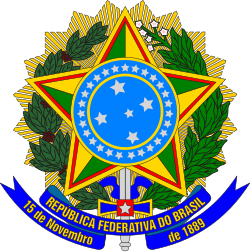| | |||||||||||||||||||||||||||||||||||||||||||||||||||||||||||||||||||||||||||||||||||||
| |||||||||||||||||||||||||||||||||||||||||||||||||||||||||||||||||||||||||||||||||||||
487 seats in the Chamber of Deputies | |||||||||||||||||||||||||||||||||||||||||||||||||||||||||||||||||||||||||||||||||||||
This lists parties that won seats. See the complete results below. | |||||||||||||||||||||||||||||||||||||||||||||||||||||||||||||||||||||||||||||||||||||
49 seats in the Senate | |||||||||||||||||||||||||||||||||||||||||||||||||||||||||||||||||||||||||||||||||||||
This lists parties that won seats. See the complete results below. | |||||||||||||||||||||||||||||||||||||||||||||||||||||||||||||||||||||||||||||||||||||
| This article is part of a series on the |
 |
|---|
Parliamentary elections were held in Brazil on 15 November 1986. [1] [2] The Brazilian Democratic Movement Party won 260 of the 487 seats in the Chamber of Deputies and 38 of the 49 seats in the Senate. The members of both chambers elected in this election, together with the Senators elected in 1982 came together to form a Constitutional Assembly during 1987 and 1988. The Assembly produced a new constitution, which was promulgated on 5 October 1988. [3]

